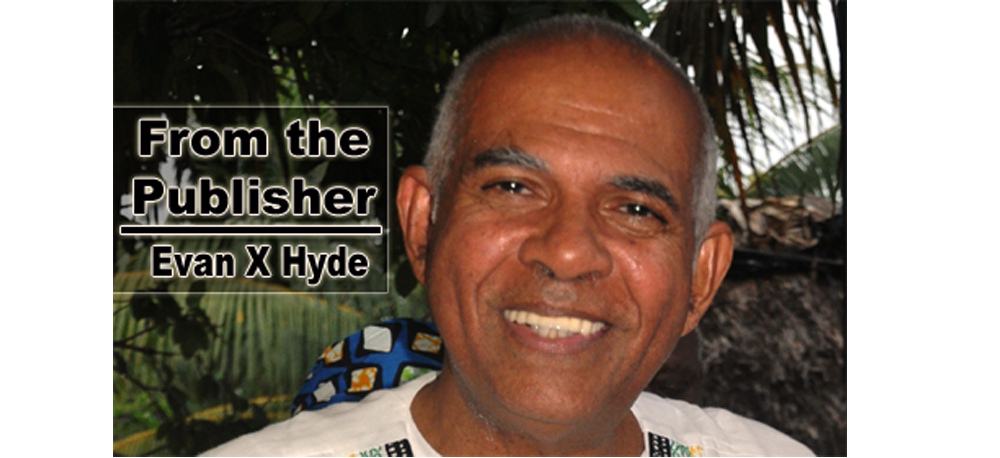My cousin, Marie-Therese Belisle Nweke, whose late husband was a Nigerian attorney who worked in Belize in the 1970s, e-mailed me to say that the late Joseph Gray was an outstanding lawyer, and clearly superior to the law partner from whom he separated — the late Dean Lindo.
One of the few PUP inside “stats” I got from the late, secretive Ray Lightburn, was the fact that then Deputy Premier (and Mesopotamia area representative) C. L. B. Rogers was not on good terms with House Speaker at the time (and ranking attorney), W. H. Courtenay, father of V. H. and Derek, and grandfather of Eamon. My sense, then, was that C. L. B. was instrumental in the recruiting of Joe Gray for the ruling PUP and his installation as “Minister without Portfolio.” Mr. Rogers apparently felt that he needed an attorney on whom he could absolutely rely.
The irony of this is that W. H. had been a leader of the anti-PUP National Party (NP) in the early 1950s, whereas C. L. B. himself had been an official in the anti-PUP National Independence Party (NIP) until 1959 or 1960. Stretch Lightburn would have the facts on these matters.
In Part I of The Godfather film trilogy, Michael Corleone has had to flee to Sicily to escape murder charges in New York City. One day, the American girlfriend he left behind comes to the Corleone home with a letter she wants delivered to Michael in Sicily.
Michael Corleone’s father, Vito, had adopted one Tom Hagen as a child, and Hagen becomes the family lawyer as an adult. When Michael’s American girlfriend tries to hand him the letter, he explains to her that he cannot accept it, because in a court of law this would amount to his acknowledging that he knows where Michael Corleone, the fugitive addressee, is located.
Belize has become an extremely litigious society. When I was growing up, you could count the number of lawyers on your fingers. Today, we have hundreds and hundreds of attorneys. And what we are seeing is that more and more it is the case that matters political are ending up in court.
This week in the United States, we saw where attorneys for President Donald Trump were in front of the U.S. Supreme Court justices challenging rulings made by federal judges with respect to the Fourteenth Amendment.
A few days ago, I heard that Shyne Barrow was taking cases to court challenging the composition and jurisdiction of the leadership of the Opposition United Democratic Party (UDP), and was even questioning the validity of the March 12 general election results presided over by the Elections and Boundaries Commission. I was waiting to hear more detailed analyses of what was going on, but my media sources have not yet pursued the matters, so it all seems a little confusing and unstable to me.
To top it off, you know we Belizeans have submitted our national boundaries to the lawyers in the International Court of Justice (ICJ) for arbitration. We have done so even after the United Nations accepted us in 1981 as a member with those boundaries which we presently enjoy.
It appears to me that we have been intimidated by Guatemalan aggressions of various sorts, and the first clear indication of this was the “adjacency zone” initiative a couple decades ago. We Belizeans are apparently hoping that a ruling by the ICJ in our favor would end aggressive behavior by the Guatemalans.
But, the Guatemalans enjoy a huge military advantage over us, and we therefore do not really have any kind of assurance that they will meekly accept an ICJ ruling which goes in our favor.
Over the last three decades, we have seen a certain British billionaire lose case after case to the Belizean government in the Supreme and Appeals Courts, only to win those cases, one after the other, in the Caribbean Court of Justice (CCJ).
We understand power to reside in the will of the people. And, we say that democracy is based on the rule of law. In Belize, the lawyers have become extremely powerful, not to mention wealthy. But personally, I have always been totally intrigued by the fact that Great Britain does not have a single, written (codified) Constitution. What does this mean? It means to me that in Britain, the lawyers cannot argue over things constitutional. The British people, then, have a power which is superior to legal arguments. They have made such a system work for them for almost a thousand years. (See Publisher’s Note.)
The above column is not cohesive, I know, but I am giving you an idea of the incredible intricacies of what we call “the law.” And I am saying to you that there are guarantees we laymen would sometimes like to have; but these guarantees, as such, only derive from ever higher courts and ever larger fees for nations like Belize. The big end up ruling the small, if you understand what I mean. And it is as if we Belizeans have been hoodwinked, to borrow the words of Malcolm.
(Publisher’s Note: An AI Overview of the matter which I accessed online at about noon on Sunday, summarizes it this way: “The UK does not have a single written constitution like many other countries. Instead, its constitution is a collection of written and unwritten laws, conventions and judicial decisions that have evolved over time. This uncodified constitution means that it’s relatively easy to change, as Parliament can modify or repeal laws with a simple majority vote.”)

